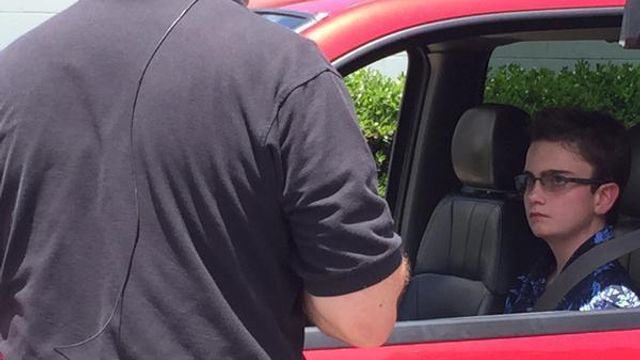Training eases stress of police encounters for special needs drivers
While most drivers can adopt common-sense tactics to diffuse that tension - communicate clearly and politely, keep hands visible, stay in the vehicle - those with disabilities or special needs face an additional challenge. This weekend in Apex, those drivers can get special training to help them anticipate and ease some of the anxiety of a traffic stop.
Posted — UpdatedWhile most drivers can adopt common-sense tactics to defuse that tension – communicate clearly and politely, keep hands visible, stay in the vehicle – those with disabilities or special needs face an additional challenge. This weekend in Apex, those drivers can get special training to help them anticipate and ease some of the anxiety of a traffic stop.
Twenty-year-old Kyla Ponciano has cerebral palsy and is unable to drive without her mother present, but, after Police Encounters training, she hopes to get her license soon.
Trainer Michael Macario, of the Raleigh Police Department, counseled Kyla Ponciano to tell an officer about her disability and the fact that it might delay her responses and reactions.
"He's going to come up here, and he's going to identify himself – who he's with – and he's going to tell you why he pulled you over," Macario said. "You can tell him right off the bat that you have cerebral palsy."
Without that information, police could assume she was drinking or otherwise under the influence.
Macario, who also owns Life Protection Skills training center in Apex, said he got the idea to create the course after one of his martial arts students was nervous and needed some instruction about getting stopped by a police officer.
"If you're dealing with a special need or a developmental disability, it could even be a tougher situation just to get the basic information out to the officer," Macario said. "It could be a slight delay in communication. It could be a slight fine-motor skill delay."
During training, Mullen asked Macario how to signal to an officer that his wallet and license were in a back pocket.
Parents say the training is a confidence boost for their young drivers and an opportunity for police officers to get a better understanding of how a driver with special needs might react.
"It makes it easier on us because we know what we're dealing with," Apex Cpl. Michael Price said.
The free Police Encounters training session will be offered Saturday at the Life Protection Skills facility, 737 Center St. in Apex, from 12:30 to 2 p.m. It is open to any any special needs individual who drives or plans to drive an automobile and has anxiety about the possibility of an encounter with police.
• Credits
Copyright 2024 by Capitol Broadcasting Company. All rights reserved. This material may not be published, broadcast, rewritten or redistributed.





